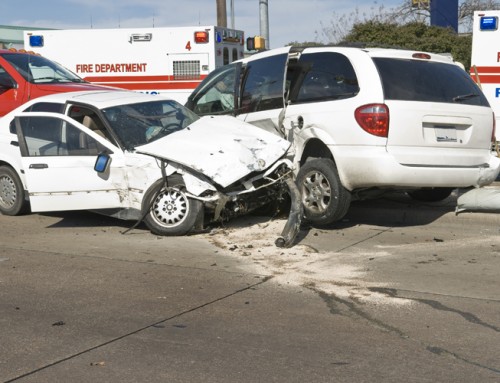If you have been injured in an accident, you likely have medical bills piling up. When you are pursuing compensation from the at-fault party or his or her insurance, you may be uncertain how to pay those medical bills. Even after the settlement, payment can be confusing. Not all bills will need to be paid out of your settlement, as some bills should still be the responsibility of insurance. The answer to your payment questions depends on the circumstances of your injury, the insurance available to pay, and your state’s liability laws. Although some common situations are examined here, an experienced attorney can help you to determine who should pay expenses in your unique situation.
Car Accidents
Unless your state is a “no-fault” state, which requires you to carry insurance that will pay your medical bills regardless of who was at fault, the insurance of the at-fault party should pay your expenses. Currently, 12 states and Puerto Rico are no-fault states. Even if you do live in a no-fault state, you can pursue compensation from the at-fault party if your expenses exceed the amount allowed by your insurance.
Workers’ Compensation
If you are injured on the job, your employer may be required to pay for your expenses through their workers’ compensation insurance. However, not all states require employers to carry such insurance. Many states also allow smaller businesses to go without worker compensation insurance, and independent contractors are often not covered by any such policy, so be sure to check your state’s requirements. Do not assume that your employer will not have worker compensation insurance, though, as companies can elect to carry it even in a state where it is not required. If your employer does not offer workers’ compensation insurance coverage, your own health insurance will have to pay. If you do not have insurance or have medical bills even after your insurance pays, you may need to file suit to receive adequate compensation.
Letter of Protection
If you do not carry any personal medical insurance, doctors and hospitals will likely expect you to pay bills immediately, even if you are working to obtain compensation from the at-fault party. Your attorney may be able to protect you in the meantime with a letter of protection. This letter essentially promises the doctor, hospital, lab, or other medical provider that your bills will be paid out of the coming settlement, assuming you win your case. This is not always successful, but many companies will accept the letter of protection and pursue payment only once the case is resolved.
Settlement Financing
When the at-fault party will not pay and your own insurance is not sufficient or is non-existent, you will need help making ends meet. Settlement financing can provide you with the money you need to pay your immediate bills, helping to prevent late fees, phone calls from your creditors, or having accounts placed in collections. Once your case is resolved, you will only pay back the settlement financing amount if you win, in which case the amount owed is simply taken from your settlement. If you lose, you do not typically have to pay back anything. Contact Capital Financing today to schedule a consultation and find out if settlement financing is right for you.








